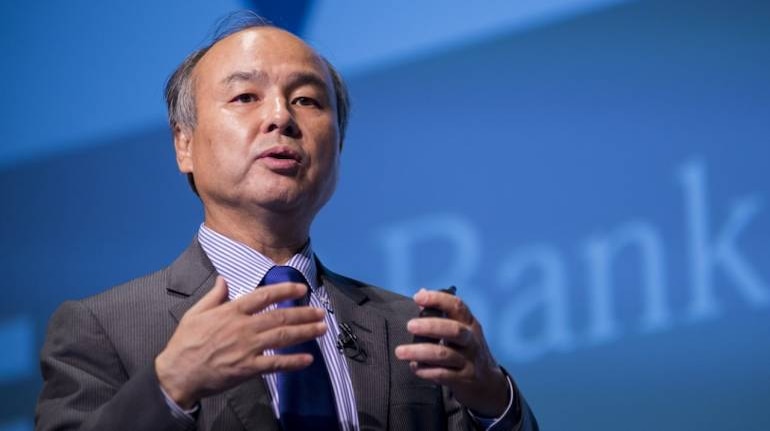



‘Selective’ was the most-used word by SoftBank’s Masayoshi Son in his 45-minute long earnings presentation as the 64-year-old billionaire sounded extremely cautious on the current market, while also announcing a reduction in headcount at the vision fund investment units after the Japanese investment conglomerate reported record quarterly loss of over $23 billion.
While Son did not give any details on the headcount reduction, he said that it was imperative for the Japanese investment conglomerate to undertake layoffs in a bid to cut costs since the company reported big losses for two consecutive quarters.
“When it comes to funds, it sometimes requires a lot of money to attract good talent to make the good investments. Unfortunately since our investment amount is smaller, the source for new investment should be smaller, then you can't have too many investment teams,” Son said.
“So Vision Fund, headcount needs to be reduced dramatically and not only Vision Fund, but also corporate since we have been seeing a huge loss,” Son added.
Son’s caution on the market was further underlined by the way the billionaire started the earnings presentation. He showed a portrait of Tokugawa Ieyasu, the founder and first shogun of the Tokugawa Shogunate of Japan, and said that the picture precisely demonstrates his feelings after his investment conglomerate recorded a multi-billion dollar loss for the second straight quarter. Son drew parallels between his feelings and Ieyasu’s emotions portrayed in the picture, which was drawn after Ieyasu suffered an obvious loss at the battle of Mikatagahara.

SoftBank will be very ‘selective’ in investing in companies, Son said, even as many believe that this is the right time to ‘buy’ as valuations across the globe have corrected significantly. He said the Japanese investment conglomerate will continue with its ‘defence’ strategy and invest in fewer deals amid a slowdown in global financial markets. In May, Son had said that SoftBank will cut its investments to a quarter in 2022. Son’s caution also reflects in the number of investments the Japanese conglomerate has done since the start of the year.
According to data by Tracxn Technologies, SoftBank has invested in as many as 28 companies in the April-June quarter of 2022, against 38 in the same period a year ago.

On a month-on-month basis, the Japanese investment conglomerate’s investments have fallen sharply since the start of this year.
 SoftBank’s index of its listed portfolio companies has performed worse than the NASDAQ Composite index, US’s technology-heavy benchmark index in the April-June period, Son showed during the presentation. While the NASDAQ Composite has fallen 22 percent during the quarter, SoftBank’s Vision Fund public stock index has fallen 31 percent.
SoftBank’s index of its listed portfolio companies has performed worse than the NASDAQ Composite index, US’s technology-heavy benchmark index in the April-June period, Son showed during the presentation. While the NASDAQ Composite has fallen 22 percent during the quarter, SoftBank’s Vision Fund public stock index has fallen 31 percent.
Son also acknowledged the much-talked-about funding winter for companies across the globe and said that since no one has clarity on how long the funding winter will last, the Japanese investment conglomerate will remain guarded on its investments. He further added that pain for unlisted companies will be worse compared to public companies. He also hinted at a possibility of unicorns going for down rounds.
"Unfortunately unicorn companies' leaders still believe in their valuations and they would not accept the fact that they may have to see their valuation go lower. So until multiples of unlisted companies is lower than those of listed companies their winter may be longer," Son said.
SoftBank’s Asia portfolio is one of the worst performing for the Japanese investment conglomerate, Son said. In Asia, SoftBank has major investments in South Korea’s Coupang Inc, Hong Kong’s SenseTime Group and India’s Paytm, Delhivery and PolicyBazaar. Son also suggested that he expects a further blip in valuations of SoftBank’s portfolio companies in the current quarter.
According to Son’s presentation, cumulative loss on investments at the two vision funds--SoftBank Vision Fund 1 and SoftBank Vision Fund 2--had widened to 5 trillion yen as of June 30, 2022, from 3.6 trillion yen as of March 31 2022.
The fair value of as many as 277 of the vision funds’ portfolio companies, accounting for 59 percent, was below their investment value as of June 30, Son’s presentation showed. While 73 companies or 16 percent of SoftBank Vision Funds’ portfolio, recorded no change in their fair value against SoftBank’s investment value, 119 companies, or 25 percent of the portfolio companies, saw their fair market value rising against SoftBank’s investment value as of June quarter.
“Even though they (some of the companies) are not listed, we calculated their value looking at comparable businesses in the market, and we decided to record for the initial loss. That was about 1 trillion yen for non-public companies and the performance of portfolio companies turned out worse than anticipated,” said Son.
“Because of that, we also recorded valuation loss--256 billion yen. So underperforming companies, and public companies and non public companies, we recorded valuation loss, a total 3.1 trillion mark down. In terms of whether or not we could find the valuation loss, according to our corporate goals, even though those companies are not listed, we recorded valuation loss,” Son added.
Son’s comments on drop in valuations of private companies come at a time when Klarna, one of SoftBank’s biggest unlisted portfolio companies, raised a funding round in July at an 85 percent lower valuation. Moreover, there were murmurs of some of SoftBank’s biggest Indian portfolio companies including Ola, going for down rounds.
Delhivery, a logistics platform backed by SoftBank, cut its valuation at the time of its IPO (initial public offering) in May this year. Oyo, another firm backed by SoftBank, has also filed for draft papers with the Securities and Exchange Board of India (Sebi), and Moneycontrol had reported that the hospitality firm was seeking a much lower valuation than what it initially was looking for.
On August 8, SoftBank reported a net loss of 3.16 trillion yen ($23.34 billion) for the quarter ended June 30, with its Vision Fund investment unit, through which the Japanese conglomerate invests in companies, posting a net loss of as much as $2.9 trillion yen.
For India, SoftBank’s earnings and Son’s comments are important as the Japanese conglomerate has been a prolific investor in the country. SoftBank has backed as many as 21 unicorns in India to date, according to data by Venture Intelligence.

Discover the latest Business News, Sensex, and Nifty updates. Obtain Personal Finance insights, tax queries, and expert opinions on Moneycontrol or download the Moneycontrol App to stay updated!
Find the best of Al News in one place, specially curated for you every weekend.
Stay on top of the latest tech trends and biggest startup news.